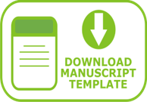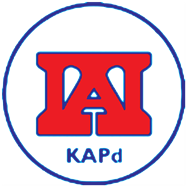Symbolic Systems or Real Solutions? Examining the Gap Between Digital Transparency and Corruption Prevention in Surabaya
DOI:
https://doi.org/10.26740/akunesa.v14n1.p76-86Keywords:
whistleblowing, Internal Control, corruption prevention, operational expenditure, SPIP, MCPAbstract
The tendency of irregularities in the management of local government operational expenditures is one of the nodes prone to corruption that is often undetected by conventional control systems. This study aims to evaluate the effect of implementing an online-based whistleblowing system on the effectiveness of internal control and corruption prevention efforts in Surabaya City Government during the 2023-2024 fiscal year. This research adopts a quantitative approach with a descriptive-explanatory design, using secondary data collected from SPIP reports, APIP capabilities, corruption control effectiveness index (IEPK), MCP scores, and WBS system outputs. Analysis was conducted using descriptive statistical methods through SPSS, but inferential testing could not be carried out due to the limited number of observations (N=1) and the absence of data variation. The results show that although the WBS system has been actively used with a report completion rate of 61.2% and internal control indicators at the “Defined” level, procurement findings worth IDR 25.6 billion were still found by BPK. This finding indicates a gap between administrative performance and implementation reality. The implications of this study emphasize the need to strengthen the integration of data-based monitoring systems and reformulate more adaptive operational expenditure controls.
References
Ahmad, S., Wasim, S., Irfan, S., Gogoi, S., Srivastava, A., & Farheen, Z. (2019). Qualitative v/s. Quantitative Research- A Summarized Review. Journal of Evidence Based Medicine and Healthcare, 6(43), 2828–2832. https://doi.org/10.18410/jebmh/2019/587
Ali, M. M., Hariyati, T., Pratiwi, M. Y., & Afifah, S. (2022). Metodologi Penelitian Kuantitatif dan Penerapan Nya Dalam Penelitian. Education Journal, 5(1), 355–370. https://doi.org/10.56670/jsrd.v5i1.143
Badawi, A. I., & Prawitno, A. (2022). Penerapan E-Government melalui Whistleblowing System (WBS) dalam Pengawasan Penyelenggaraan Pemerintahan di Kabupaten Bulukumba. Matra Pembaruan, 6(1), 69–81. https://doi.org/10.21787/mp.6.1.2022.69-81
Basheka, B. C., Oluka, P. N., & Karyeija, G. K. (2013). The nature and forms of public procurement corruption in Uganda’s local government systems: Implications for good governance debate. International Journal of Procurement Management, 6(6), 684–701. https://doi.org/10.1504/IJPM.2013.056762
Basu, S. (2004). E‐government and developing countries: an overview. International Review of Law, Computers & Technology, 18(1), 109–132. https://doi.org/10.1080/13600860410001674779
Bochko, V. S. (2016). Economic Autonomy of Regions in the New Reality. R-Economy, 2(2), 180–193. https://doi.org/10.15826/recon.2016.2.2.016
Djamil, N. (2023). APIP dalam Pelaksanaan Maturitas SPIP: Government Internal Supervisory Apparatus in Implementing the Maturity of the Government Internal Control System. JAAMTER : Jurnal Audit Akuntansi Manajemen Terintegrasi, 1(2), 76–88. https://naaspublishing.com/index.php/jaamter/article/view/3
Government Regulation No. 60 of 2008. (2008). PERATURAN PEMERINTAH REPUBLIK INDONESIA NOMOR 60 TAHUN 2008 TENTANG SISTEM PENGENDALIAN INTERN PEMERINTAH. 276.
Hanis, M. H. (2012). A Public Asset Management Framework for Indonesian Local Governments. Science and Engineering Faculty, PhD(November), 281.
Haryanto, K., & Ardillah, K. (2022). The Impact of Internal Audit, Internal Control and Whistleblowing System on Fraud Prevention in the Indonesia Banking Companies during the COVID-19 Pandemic. Jurnal Ilmu Manajemen & Ekonomika, 14(1), 27. https://doi.org/10.35384/jime.v14i1.290
Hilal, F., Aulia Indy Irawan, R., wati, I., Bisnis Prodi Manajemen Keuangan Sektor Publik, J., & Negeri Lhokseumawe, P. (2024). Peran Audit Internal (Apip) Dalam Meningkatkan Efektivitas Pengawasan Dan Pencegahan Korupsi Di Indonesia. Jurnal Sosial Humaniora Sigli |, 7(2), 28.
Kementrian Dalam Negri Indonesia. (n.d.). Whistle Blowing System. https://www.ojk.go.id/Files/201504/PRESSRELEASEAIMRPK31Maret2015_1427872974.pdf
Leavy. (2017). Research Design: Quantitative, Qualitative, Mixed Methods, Arts-Based, and Community-Based Participatory Research Approaches. New. 111.
Masdar, R., Furqan, A. C., Masruddin, M., & Meldawaty, L. (2021). The role of transparency and professional assistance in regional financial management in the Indonesian regional governments. Journal of Public Affairs, 21(3). https://doi.org/10.1002/pa.2666
Mustanir, A. (2018). Pengaruh Pemanfaatan Teknologi Informasi Dan Pengawasan Keuangan Daerah Terhadap Kualitas Laporan Keuangan (Issue September).
Nurhidayat, I., & Kusumasari, B. (2018). Strengthening the effectiveness of whistleblowing system A study for the implementation of anti-corruption policy in Indonesia. Journal of Financial Crime, 25(1), 140–154. https://doi.org/10.1108/JFC-11-2016-0069
Nurkartika, N. (2025). E-Goverment Transformasi Menuju Good Goovernance. Jurnal Ilmu Sosial Dan Humaniora (Isora), 3(1), 1–10. https://isora.safar.id/index.php/isora
Prakasa, S. U. W., Asis, & Sahid, M. M. (2022). Reduce Corruption in Public Procurement: The Effort Towards Good Governance. 10(1), 33–42.
Prasad, K. (2016). Article ID: IJM_07_06_011 A Comparative Analysis using Multinomial Logistic Regression Approach. International Journal of Management (IJM), 7(6), 95–110. http://www.iaeme.com/IJM/index.asp95http://www.iaeme.com/ijm/issues.asp?JType=IJM&VType=7&IType=6JournalImpactFactor%0Awww.jifactor.comhttp://www.iaeme.com/IJM/index.asp96http://www.iaeme.com/IJM/issues.asp?JType=IJM&VType=7&IType=6
Prihartono, D. (2023). Penerapan Pelayanan Publik Berbasis E-Governance Pada Era Revolusi Industri 4.0. Kebijakan : Jurnal Ilmu Administrasi, 14(2), 192–201. https://doi.org/10.23969/kebijakan.v14i2.5179
Riyanto, R. F., & Arifin, Z. (2022). Efektivitas Whistleblowing System Dan Sistem Pengendalian Gratifikasi Terhadap Pencegahan Fraud Pada Sektor Publik Yang Dimoderasi Oleh Pendeteksian Fraud. Jurnal Magister Akuntansi Trisakti, 9(2), 105–122. https://doi.org/10.25105/jmat.v9i2.12922
Rosidah, I., Gunardi, Priatna Kesumah, & Royke Bahagia Rizka. (2023). Transparasi Dan Akuntabilitas Dalam Pencegahan Fraud Diinstansi Pemerintah (Studi Kasus Kantor Kec. Ciwidey). Jurnal Ekonomi Manajemen Bisnis Dan Akuntansi : EMBA, 2(1), 137–156. https://doi.org/10.59820/emba.v2i1.110
Setyawan, E. C., Rustiani, D., Nawazir, N., Marcelina, S., Phang, V., Lumanaw, N., Erikson, E., & Umar, H. (2019). Pengaruh Spip Dan Efektivitas Internal Audit Terhadap Pencegahan Korupsidenganimplementasi Akuntansi Berbasis Akrual Sebagai Variabel Intervening (Studi Pada Kantor Pusat Kementerian Perhubungan). Prosiding Seminar Nasional Pakar, 1–8. https://doi.org/10.25105/pakar.v0i0.4240
Solihatunnisa, S., & Hastuti. (2023). Pengaruh Sistem Pengendalian Internal Pemerintah dan Whistleblowing System Terhadap Pencegahan Fraud Dalam Pengelolaan Dana Bantuan Operasional Sekolah (Studi Kasus Pada MTS di Kecamatan Bandung Kulon). Indonesian Accounting Research Journal, 9(1), 70–85. https://doi.org/10.30591/monex.v9i1.1699
Soni, V., Dey, P. K., Anand, R., Malhotra, C., & Banwet, D. K. (2017). Digitizing grey portions of e-governance. Transforming Government: People, Process and Policy, 11(3), 419–455. https://doi.org/10.1108/TG-11-2016-0076
Sumarauw, D. C., Manossoh, H., & Wokas, H. R. N. (2023). Analisis Peran APIP Terhadap Program Monitoring Centre for Prevention Koordinasi Supervisi Pencegahan Korupsi (MCP Korsupgah) KPK Dalam Pencegahan Korupsi. Jurnal Riset Akuntansi Dan Auditing “GOODWILL,” 14(1), 2023.
Supriadi, T., Tjakrawala, K., Suryadnyana, N. A., Sjam, J. M. E., & Marota, R. (2025). Fraud Prevention in the Public Sector: the Role of Internal Audit. Ikonomicheski Izsledvania, 34(3), 170–183.
Treiman, D. J. (2014). Quantitative Data Analysis Doing Social Research to Test Ideas by Donald J. Treiman (z-lib.org)-1.
Walle, Y. M. (2020). The impact of digital government on whistleblowing and whistle-blower protection: Explanatory study. Journal of Information Technology Management, 12(1), 1–26. https://doi.org/10.22059/JITM.2019.291003.2409
Wibisono, E., & Khoirunurrofik, K. (2023). Analisis Hubungan Pencegahan Korupsi dan Pajak Daerah di Indonesia Tahun 2018-2020. Jurnal Kebijakan Ekonomi, 18(1), 33–45. https://doi.org/10.21002/jke.2023.03
Widyadhana, K. A., & Kirana DP, R. T. (2025). Efektivitas Whistleblowing Dalam Fraud Detection: Pilar Transparansi Atau Risiko Retaliasi? Jurnal Ekonomi, Bisnis Dan Manajemen, 4(2), 78–93. https://doi.org/10.58192/ebismen.v4i2.3344
Yanto, A., Hikmah, F., & Aqil, N. A. (2023). Reoptimalisasi Perlindungan Hukum Saksi Pelapor (Whisteblower) Dalam Tindak Pidana Korupsi. Recht Studiosum Law Review, 2(1), 1–8. https://doi.org/10.32734/rslr.v2i2.11278
Zarefar, A., & Arfan, T. (2017). Efektivitas Whistleblowing System Internal Atika. Jurnal Politeknik Caltex Riau, 10(2), 25–33. https://www.dbpia.co.kr/Journal/articleDetail?nodeId=NODE09221402
Zhafran, M. A., Zahri, S., & Salia, E. (2025). Penerapan Perlindungan Hukum bagi Whistleblower dalam Kasus Tindak Pidana Korupsi. Jurnal Al-Mizan, 6468, 109–117. https://etd.unsyiah.ac.id/index.php?p=show_detail&id=36535
Downloads
Published
How to Cite
Issue
Section
 Abstract views: 169
,
Abstract views: 169
, PDF Downloads: 121
PDF Downloads: 121







